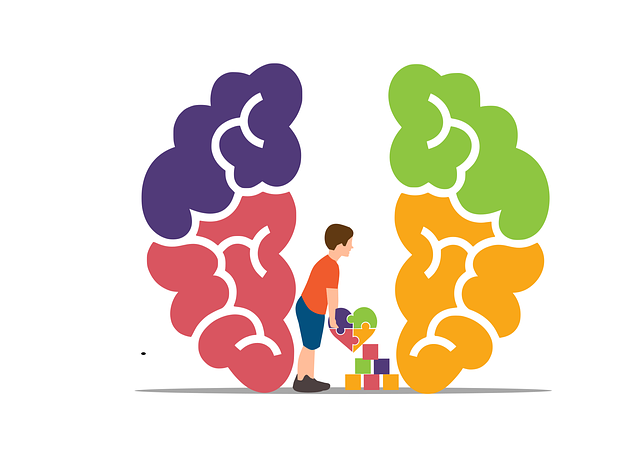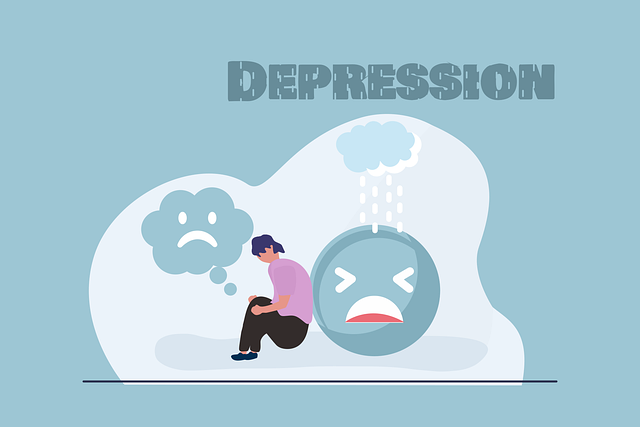Cognitive Behavioral Therapy (CBT) is a powerful therapy that promotes mental wellness by targeting negative thought patterns and behaviors, replacing them with realistic perspectives. CBT teaches communication skills, enhances resilience, manages stress, anxiety, and depression, and empowers individuals to take control of their mental health. Integrating CBT into daily life offers practical techniques like journaling, mindfulness exercises, and adequate sleep hygiene for improved well-being and reduced mental illness stigma. Seeking therapy for CBT from specialized professionals helps manage conditions like anxiety and trauma, fostering resilience and proactive emotional health management.
Mental wellness is a cornerstone of overall well-being, and Cognitive Behavioral Therapy (CBT) has emerged as a powerful tool in promoting positive mental health. This article explores the transformative power of CBT, highlighting its role in fostering resilience and overcoming challenges. We delve into practical strategies for integrating CBT techniques into daily life, emphasizing continuous mental wellness. Additionally, we guide readers on seeking expert support and accessible resources to effectively implement CBT as a therapy for enhancing cognitive behavioral well-being.
- Understanding Mental Wellness: The Importance of Cognitive Behavioral Therapy (CBT)
- Unlocking the Benefits: How CBT Promotes Positive Mindset and Overcomes Challenges
- Integrating CBT into Daily Life: Practical Strategies for Continuous Mental Wellness
- Seeking Support: Resources and Experts for Effective CBT Implementation
Understanding Mental Wellness: The Importance of Cognitive Behavioral Therapy (CBT)

Understanding mental wellness involves recognizing that it’s not just the absence of illness but a state of well-being where individuals can thrive and cope with life’s challenges. Cognitive Behavioral Therapy (CBT) is a powerful therapy for promoting mental wellness by focusing on identifying and changing negative thought patterns and behaviors. This evidence-based approach teaches individuals effective communication strategies, helping them express their needs and emotions healthily.
By exploring the mind-over-matter principles behind CBT, one can develop resilience and learn to manage stress, anxiety, and depression. The therapy encourages active participation in challenging negative thoughts and replacing them with more realistic and positive ones. This process empowers individuals to take control of their mental health and cultivate a healthier mindset, contributing significantly to overall mental wellness.
Unlocking the Benefits: How CBT Promotes Positive Mindset and Overcomes Challenges

Cognitive Behavioral Therapy (CBT) is a powerful tool for unlocking the benefits of positive mindset and overcoming various challenges related to mental wellness. CBT focuses on identifying and changing negative thought patterns that contribute to feelings of anxiety, depression, or other mental health issues. By replacing these unhelpful thoughts with realistic and balanced ones, individuals can gain a clearer perspective and develop more adaptive behaviors. This process not only enhances overall well-being but also equip people with effective coping strategies for managing stress and navigating life’s challenges.
One of the key advantages of CBT is its ability to target specific symptoms and goals tailored to each individual. It addresses underlying beliefs and behaviors that sustain mental illness, offering a practical approach to anxiety relief and improving one’s quality of life. Moreover, CBT plays a significant role in Mental Illness Stigma Reduction Efforts by promoting understanding and self-acceptance, fostering positive thinking, and encouraging individuals to actively participate in their journey towards recovery.
Integrating CBT into Daily Life: Practical Strategies for Continuous Mental Wellness

Integrating Cognitive Behavioral Therapy (CBT) into daily life offers a powerful approach to continuous mental wellness. CBT focuses on identifying and changing negative thought patterns and behaviors that contribute to stress, anxiety, or depression. By understanding the connection between thoughts, feelings, and actions, individuals can develop effective coping strategies for managing their mood. One practical strategy involves tracking thoughts and emotions in a journal, allowing one to recognize recurring negative thought cycles and challenge them with more realistic and positive alternatives.
Additionally, CBT promotes active engagement in stress reduction methods such as mindfulness exercises, regular physical activity, and adequate sleep hygiene. These practices not only enhance overall well-being but also serve as valuable tools for navigating life’s challenges. Furthermore, integrating CBT into daily routines contributes to mental illness stigma reduction efforts by fostering self-awareness, resilience, and a proactive approach to emotional health.
Seeking Support: Resources and Experts for Effective CBT Implementation

Seeking support is a crucial step towards implementing effective Cognitive Behavioral Therapy (CBT). The right resources and experts can greatly enhance one’s journey towards mental wellness. Many individuals find therapy for CBT beneficial in managing conditions like anxiety relief and addressing underlying trauma. These therapeutic approaches focus on identifying and changing negative thought patterns, enabling people to develop healthier coping mechanisms.
Professionals specializing in CBT can be found through various channels, including online platforms and local mental health clinics. They offer personalized sessions tailored to individual needs, utilizing evidence-based techniques. By leveraging the mind over matter principles, these experts guide clients towards a more positive mindset, fostering resilience and overall mental well-being.
Mental wellness is a journey, and Cognitive Behavioral Therapy (CBT) offers a powerful toolset to navigate it. By understanding the importance of CBT, unlocking its benefits, and integrating practical strategies into daily life, individuals can foster positive mindsets and overcome challenges effectively. Remember that seeking support from resources and experts is vital for successful implementation of this therapy for cognitive behavioral therapy. Embrace these insights and take charge of your mental wellness today.












